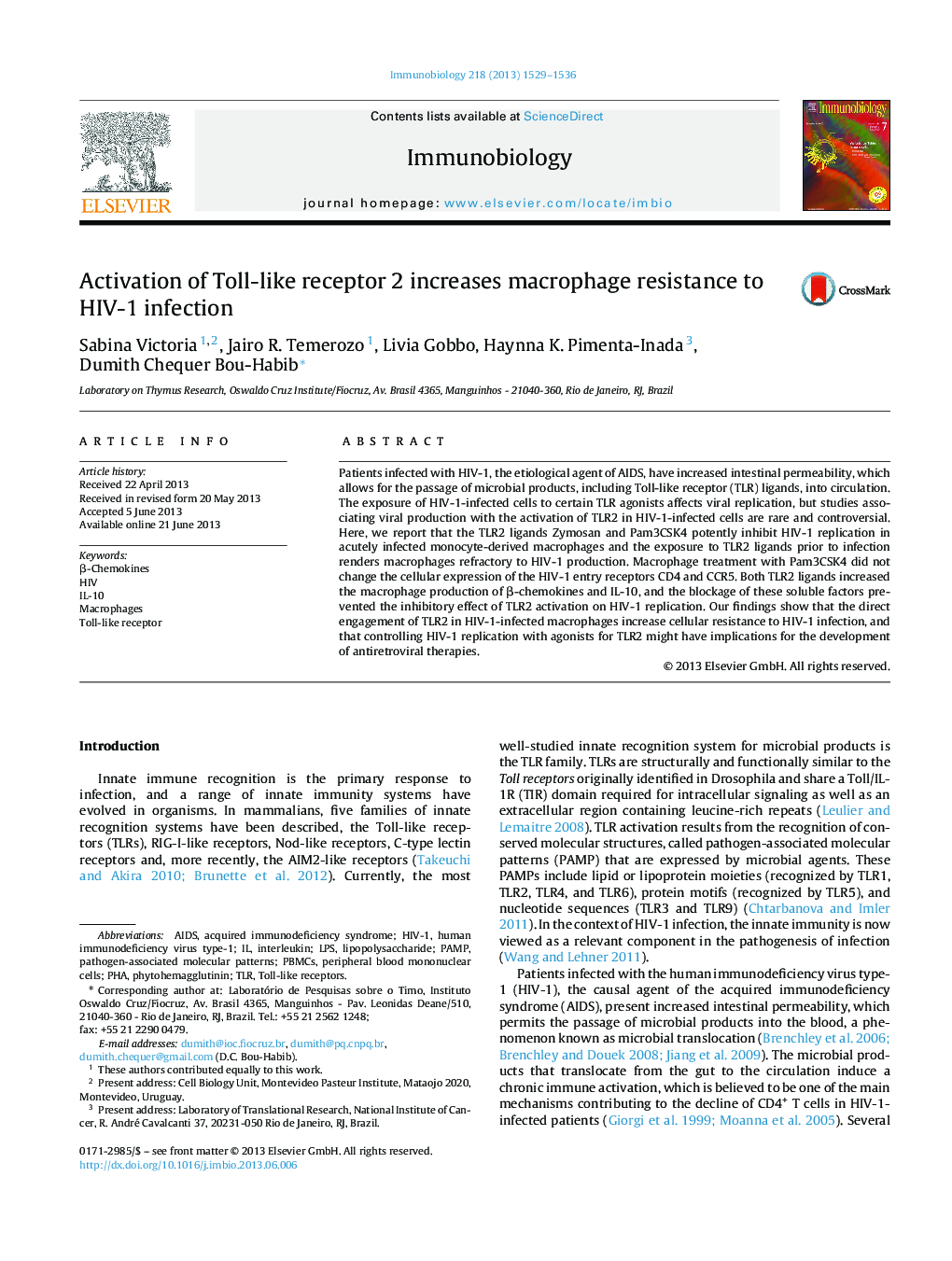| Article ID | Journal | Published Year | Pages | File Type |
|---|---|---|---|---|
| 2182880 | Immunobiology | 2013 | 8 Pages |
Patients infected with HIV-1, the etiological agent of AIDS, have increased intestinal permeability, which allows for the passage of microbial products, including Toll-like receptor (TLR) ligands, into circulation. The exposure of HIV-1-infected cells to certain TLR agonists affects viral replication, but studies associating viral production with the activation of TLR2 in HIV-1-infected cells are rare and controversial. Here, we report that the TLR2 ligands Zymosan and Pam3CSK4 potently inhibit HIV-1 replication in acutely infected monocyte-derived macrophages and the exposure to TLR2 ligands prior to infection renders macrophages refractory to HIV-1 production. Macrophage treatment with Pam3CSK4 did not change the cellular expression of the HIV-1 entry receptors CD4 and CCR5. Both TLR2 ligands increased the macrophage production of β-chemokines and IL-10, and the blockage of these soluble factors prevented the inhibitory effect of TLR2 activation on HIV-1 replication. Our findings show that the direct engagement of TLR2 in HIV-1-infected macrophages increase cellular resistance to HIV-1 infection, and that controlling HIV-1 replication with agonists for TLR2 might have implications for the development of antiretroviral therapies.
